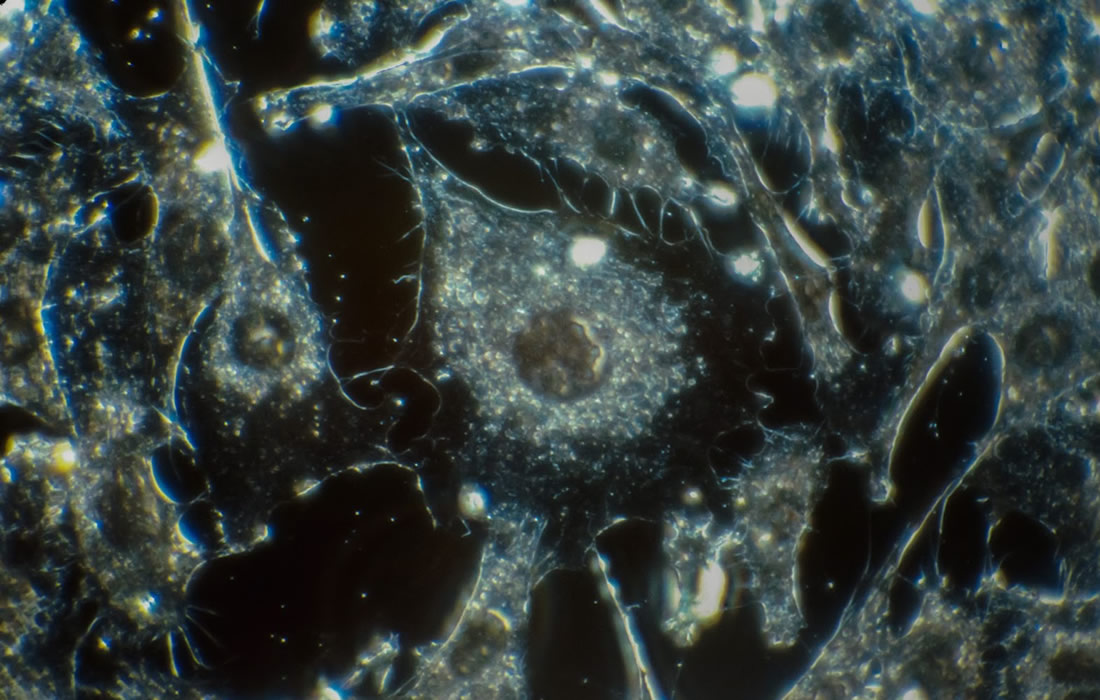As many as 5.8 million Americans are currently living with Alzheimer’s disease, a neurodegenerative condition associated with progressive cognitive decline, including loss of memory capabilities . Protein aggregates, composed of beta-amyloid or other proteins, form in the brains of individuals with Alzheimer’s. These beta-amyloid plaques “We uncovered an important immune cell communication axis that is […]
Category Archives: Regenerative Medicine News and General Information
Hidden HIV cells, known as latent infection, are responsible for the virus permanently remaining in the body and cannot be treated by current therapy options. These hibernating, infected cells are the reason why people living with HIV require life-long treatment to suppress the virus. Led by WEHI and The Peter Doherty Institute for Infection and […]
In the journal Angewandte Chemie, a research team has now introduced a completely new approach for treating herpes. Their method is based on the inhibition of an enzyme that is needed for the release of newly formed virus particles from infected cells. The majority of adults carry the instigator of herpes in their bodies because, […]
Obsessive-compulsive disorder (OCD) is a neurological disorder characterized by repeated behaviors such as cleaning and checking despite clear objective evidence of cleanliness, orderliness, and correctness. Although the disease is often mischaracterized as a disorder of “fussiness,” the disorder actually stems from difficulty in processing uncertainty. However, the neural underpinnings of that aberrant processing remains unknown. […]
Pneumonia is an infection of the lung alveoli caused by bacteria, viruses or fungi. The microbial ecosystem (or microbiome) of the human respiratory tract colonizes different niches. Scientists from the Institut Pasteur and the CNRS have demonstrated that the microbiome composition, pathogen load and clinical interventions influence the severity of bacterial pneumonia caused by Legionella […]
Chronic wounds pose significant challenges as they often fail to heal properly over time and can lead to complications associated with diabetes and vascular diseases. In severe cases, they may result in sepsis. Led by Professor Joo H. Kang, a team successfully developed a microfluidic system capable of processing blood into an artificial tissue scaffold. […]
New research from Rice University finds that antidepressants may actually reduce negative memories in individuals suffering from depression while improving overall memory function. The study, “Perceived antidepressant efficacy associated with reduced negative and enhanced neutral mnemonic discrimination,” appears in the latest edition of Frontiers in Human Neuroscience. It examines how antidepressant use in depressed individuals […]
Researchers who previously developed the first 3D human cell culture models of Alzheimer’s disease (AD) that displays two major hallmarks of the condition — the generation of amyloid beta deposits followed by tau tangles — have now used their model to investigate whether the exercise-induced muscle hormone irisin affects amyloid beta pathology. As reported in […]
People who have had a stroke called an intracerebral hemorrhage who take cholesterol-lowering drugs called statins may have a lower risk of having another stroke, especially ischemic stroke, compared to people who also had an intracerebral hemorrhage but were not taking statins, according to a new study. “We looked at whether use of statins after […]
A team of scientists from the University of California, Irvine, believe they have discovered a special antibody which may lead to a treatment for Retinitis Pigmentosa, a condition that causes loss of central vision, as well as night and color vision. The study, Structural basis for the allosteric modulation of rhodopsin by nanobody binding to […]










